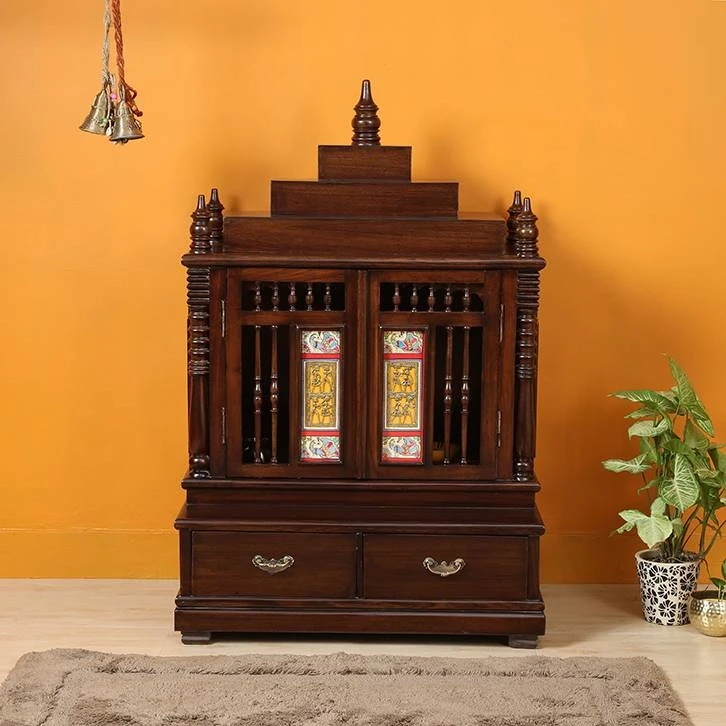In many Indian households, a Pooja cabinet or altar holds a special place. It's not just a piece of furniture; it's a sacred space where families come together to connect with the divine. The significance of a Pooja cabinet goes beyond its ornate design and craftsmanship; it represents a spiritual sanctuary within the home.
A Place of Reverence:
In Hinduism and various other Indian religions, daily worship, or "Pooja," is a common practice. It's a way of expressing devotion, gratitude, and seeking blessings from the divine. A Pooja cabinet is the focal point of these rituals, housing idols, images of deities, and other sacred objects.
Designing Your Sacred Space:
Pooja cabinets come in a wide range of designs, sizes, and materials. Some are intricately carved from wood, while others are sleek and modern. Choosing the right Pooja cabinet is a deeply personal decision, often influenced by cultural and aesthetic preferences.
The Elements of a Pooja Cabinet:
A well-organized Pooja cabinet typically contains various elements, each with its own significance:
Idols and Deities: These represent the divine and serve as a focal point for prayers and offerings.
Lamps (Diya or Deepam): Lighting lamps symbolizes the removal of darkness and the spreading of knowledge.
Incense (Agarbatti): The pleasant aroma is believed to purify the air and create a spiritually charged atmosphere.
Bell (Ghanta): The sound of the bell is said to dispel negative energy and invite positive vibrations.
Offerings (Prasad): Fruits, flowers, sweets, and other items are offered to the deities and later consumed as blessings.
Holy Water (Gangajal or Tulsi Water): Sprinkling holy water is a purification ritual.
Maintaining the Sanctity:
A Pooja cabinet requires regular care and attention. Cleaning and decorating it with fresh flowers and vibrant fabrics are common practices. Devotees often ensure that the cabinet is placed in a clean, peaceful, and well-lit area of the home.
The Spiritual Connection:
Having a Pooja cabinet in your home fosters a sense of spirituality and connection with your faith. It's a place for meditation, reflection, and seeking solace during challenging times. Families gather here to celebrate festivals, perform rituals, and pass down traditions to the younger generations.
Respect and Reverence:
Respecting the Pooja cabinet is of utmost importance. It's customary to wash your hands and feet before approaching it and to dress modestly when conducting worship. The cabinet should never be placed in inappropriate places, such as bedrooms or bathrooms.
Conclusion:
A Pooja cabinet is not just a piece of furniture; it's a symbol of devotion and spirituality deeply ingrained in Indian culture. Its elegance and significance make it an essential part of many Indian homes, serving as a constant reminder of the sacred connection between the material and the divine.



